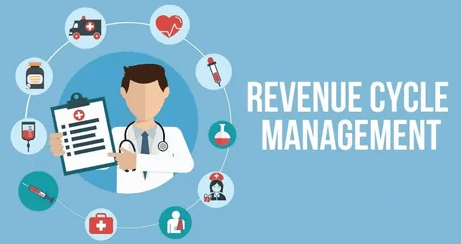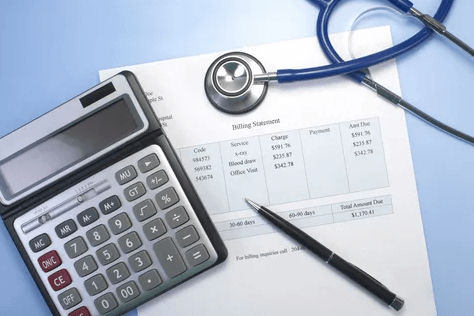The Importance of Accurate Documentation in Medical Billing
Introduction
Accurate documentation plays a pivotal role in medical billing, with far-reaching implications for healthcare providers, patients, and the healthcare system. This critical practice ensures proper reimbursement, compliance with legal and regulatory standards, and patient safety. It also guards against fraud and abuse, streamlines revenue cycle management, and enhances the overall quality of healthcare services. In this context, we delve deeper into the profound significance of meticulous and precise documentation within the complex medical billing landscape.
This blog aims to provide clear insights and assistance to help you better understand various topics and concepts.
Ensuring Proper Reimbursement

Accurate documentation in medical billing is an indispensable cornerstone for ensuring that healthcare providers receive the rightful reimbursement for their services. This process involves meticulous recording and reporting of every aspect of patient care, from diagnoses and treatments to procedures and medications.
Failure to maintain precise documentation can have severe financial repercussions. Errors or omissions in the documentation can result in service underpayment, forcing healthcare organizations to bear unwarranted financial burdens. Additionally, claims may be outright denied, exacerbating financial strain and hindering patient access to care.
Furthermore, accurate documentation isn’t solely a matter of fiscal prudence; it also ties into legal and regulatory compliance. Many healthcare organizations must adhere to the stringent Health Insurance Portability and Accountability Act (HIPAA) and the Affordable Care Act (ACA), which require comprehensive and accurate documentation.
Legal and Regulatory Compliance
In the healthcare industry, precise and comprehensive documentation is not just a best practice; it’s a legal and regulatory imperative. Compliance with legislation such as the Health Insurance Act (HIPAA) and the Affordable Care Act (ACA) hinges on maintaining accurate records. HIPAA safeguards patients’ privacy and data security, mandating meticulous documentation to protect sensitive information. Meanwhile, the ACA requires extensive documentation to ensure transparency and accountability in healthcare delivery and billing practices. Failing to meet these legal obligations can result in severe penalties, including fines and legal repercussions, making adherence to documentation standards a cornerstone of responsible and lawful healthcare operations.
Patient Safety and Continuity of Care
Accurate medical documentation contributes to patient safety by providing a complete and precise record of a patient’s medical history, treatments, and medications. This information is vital for healthcare providers to make informed decisions and ensure continuity of care.
- Informed Decision-Making
Accurate medical documentation is a linchpin in healthcare by furnishing healthcare providers with a comprehensive and precise repository of a patient’s medical history, treatments, and medications. Healthcare professionals can make informed decisions tailored to patients’ needs with this invaluable information. Whether it involves choosing the most suitable treatment, adjusting medication dosages, or identifying potential contraindications, accurate documentation empowers healthcare providers to act swiftly and effectively, enhancing patient safety.
- Continuity of Care
Seamless and uninterrupted care is a hallmark of an effective healthcare system. Accurate documentation ensures smooth continuity of care as it allows different healthcare providers across various specialties or settings to access and understand a patient’s medical history and ongoing treatments. This continuity is vital in emergencies, transitions between healthcare facilities, or when patients see multiple specialists. It reduces the likelihood of errors, duplicative tests, and conflicting treatment plans, ultimately safeguarding patients from potential harm.
- Error Prevention
Accurate medical documentation is a crucial defense against medical errors. Healthcare providers can spot inconsistencies, detect potential medication interactions, and avert diagnostic errors by maintaining a precise record of a patient’s health journey. This proactive approach reduces events and promotes patient safety. In essence, accurate documentation is not just a record-keeping task but a cornerstone of patient safety and seamless continuity of care in the complex healthcare landscape.
Preventing Fraud and Abuse

Preventing fraud and abuse in healthcare hinges on accurate documentation. Detailed and precise records safeguard against fraudulent billing practices and the misuse of healthcare resources. By maintaining transparent documentation of services rendered, diagnoses, and patient interactions, healthcare organizations can promptly spot irregularities or intentional misrepresentations. This proactive approach helps prevent fraudulent claims, safeguard the integrity of the healthcare system, and preserve resources for genuine patient care needs. Additionally, it fosters trust among patients, insurers, and regulatory bodies, reinforcing the ethical foundation of the healthcare industry while curbing fraudulent activities that can undermine its sustainability.
Efficient Revenue Cycle Management
Efficient Revenue Cycle Management (RCM) in healthcare is crucial for financial sustainability and quality patient care. Accurate documentation in medical billing plays a pivotal role in achieving this efficiency. Precise records of patient encounters, diagnoses, treatments, and procedures are the foundation of successful RCM.
Accurate documentation ensures that healthcare providers bill for the services they have provided, reducing claim denials and delays in reimbursement. It also enhances coding and billing regulations compliance, reducing the risk of audits and penalties.
Quality of Healthcare Services
Incorporating these elements into healthcare services ensures a higher quality of care, improved outcomes, and overall health system improvements.
Patient-Centered Care
Quality healthcare services prioritize the patient’s needs, preferences, and values. This means involving patients in decision-making, providing clear communication, and ensuring comfort and satisfaction. Patient-centered care fosters trust, improves outcomes, and enhances the patient experience.
Clinical Excellence
High-quality healthcare services rely on the expertise of healthcare professionals, rigorous training, and adherence to evidence-based practices. Clinicians should stay current with medical advancements, follow best practices, and continuously learn to deliver practical, safe care.
Accessible and Timely Care
Accessibility is crucial to quality healthcare. Patients should have timely access to healthcare services, regardless of location or socioeconomic status. Reducing wait times, improving appointment scheduling, and offering telehealth options are ways to enhance access and timeliness.
Safety and Accountability
Patient safety is paramount in providing quality healthcare services. Hospitals and clinics must have robust safety protocols, minimize medical errors, and promote a culture of accountability among staff. Regular audits, reporting mechanisms, and transparency create a safer healthcare environment.
Concluding Remarks
In conclusion, accurate documentation in medical billing is not merely a clerical task; it’s the cornerstone of a financially stable and efficient healthcare system. It minimizes claim denials, ensures compliance, and reduces the risk of audits. Moreover, accurate documentation enhances patient care by providing a complete medical history. Its significance cannot be overstated, as it ultimately impacts the financial health of healthcare providers and the quality of care delivered to patients.








